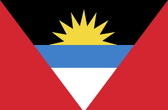
Call 0330 880 3600 Calls may be monitored or recorded. Opening Times.
- TRAVEL INSURANCE
- COVID-19 COVER
- More Options
- Help & Advice
- Existing Customers

Call 0330 880 3600 Calls may be monitored or recorded. Opening Times.

Need help?
UK Customer Services0330 880 3600*
Open Monday to Friday 9:00am to 6pm, Saturday 8:30am to 4pm and closed Sundays.
*Calls are recorded for training and quality purposes.

Official name: Antigua and Barbuda
Capital city: St. John’s
Official language: English
Population: Around 100,000
Currency: East Caribbean dollar (XCD)
Time zone: GMT-4
Driving side: Left
Climate: Warm and tropical year-round, with a wetter season from June to November
Antigua and Barbuda is a twin-island nation in the eastern Caribbean, famed for its turquoise waters, coral reefs, and some of the region’s most beautiful beaches - locals like to say there’s one for every day of the year. Antigua is the larger and more developed island, while Barbuda offers a slower pace with pink sand beaches and wildlife sanctuaries. Tourism is the country’s main industry, complemented by a laid-back island culture and friendly hospitality.
Antigua is volcanic in origin with rolling hills and natural harbours, while Barbuda is flat and dotted with lagoons. The islands are surrounded by coral reefs, making them ideal for diving and snorkelling. The climate is hot and sunny for most of the year, with refreshing trade winds helping to keep conditions pleasant. The wet season coincides with the Atlantic hurricane season, so storms are possible between June and November.
V.C. Bird International Airport in Antigua is the main gateway, with regular flights from the UK, US, and regional hubs. Travel between Antigua and Barbuda is possible by ferry or small aircraft. Driving is on the left, and visitors can obtain a temporary local licence to hire cars. Public minibuses operate on Antigua but not Barbuda. Crime levels are relatively low, though petty theft does occur (particularly around tourist areas) so take normal precautions.
British nationals do not need a visa for stays of up to six months. Passports must be valid for at least six months from the date of entry. Other visitors should check requirements with the Antigua and Barbuda Immigration Department or their nearest embassy.
The official currency is the East Caribbean dollar (XCD), but US dollars are also widely accepted. Credit cards are commonly used in hotels, restaurants, and larger shops, while ATMs are available in St. John’s and tourist areas. Carrying some cash is useful when travelling to rural areas or smaller businesses.
Healthcare facilities are limited compared to Europe or North America, though there is a hospital on Antigua and small clinics on both islands. Serious medical cases may require evacuation to another country, so comprehensive travel insurance is essential. Mosquito-borne diseases such as dengue, chikungunya, and Zika have been reported, so insect protection is recommended. Tap water may not always be reliable — bottled water is the safer option.